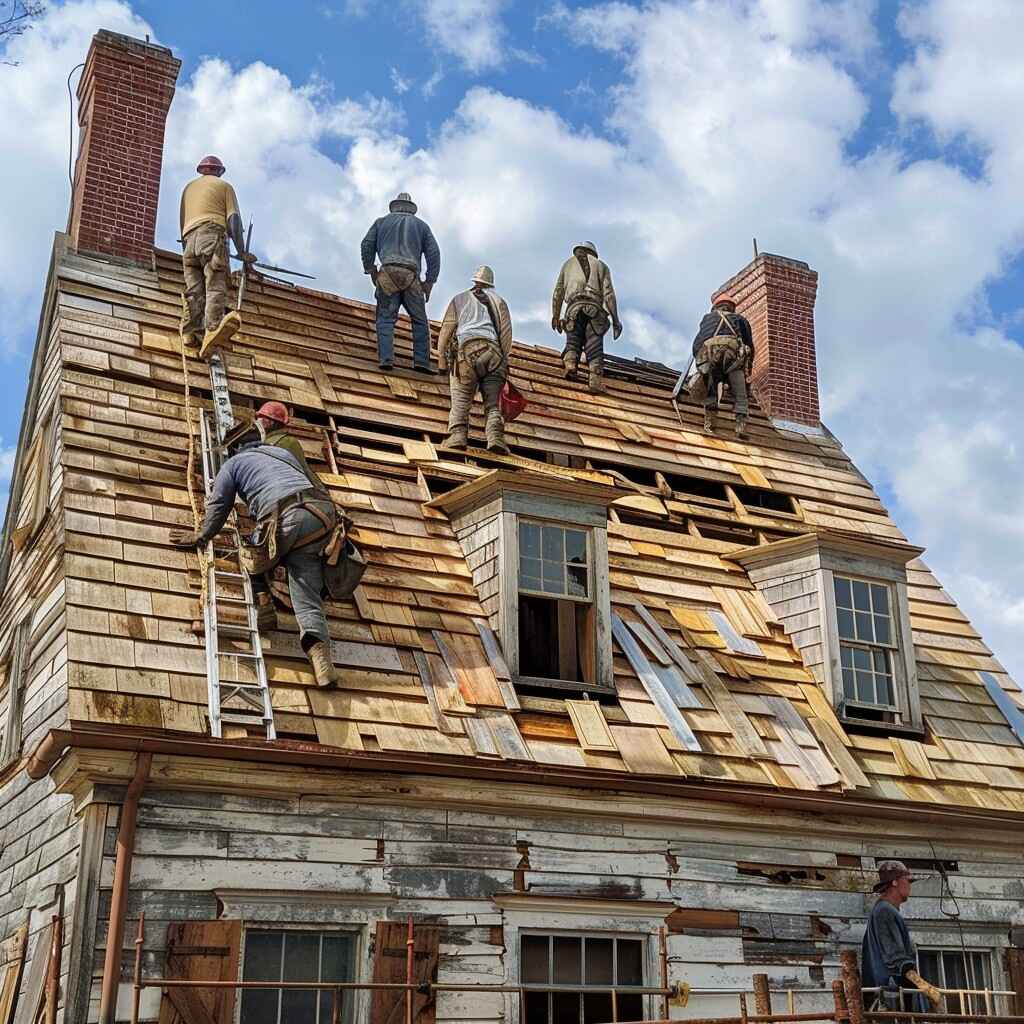According to skilled roofers, understanding the main types of roofing warranties is essential. Manufacturer warranties cover 10 to 50 years of materials and artistry, ensuring quality and addressing defects. Contractor artistry guarantees focus on installation quality, with varying coverage and duration. Extended warranties go beyond standard coverage, lasting up to 50 years and covering a more comprehensive range of issues. Transferable warranties attract property buyers, adding value and offering peace of mind. Each type offers unique benefits and considerations, influencing the protection and lifespan of your roof.
Manufacturer Warranties
Manufacturer warranties are an essential aspect of roofing systems, offering protection against defects in materials or artistry provided by the roofing product manufacturer. These warranties typically cover a specified period, ranging from 10 to 50 years, depending on the manufacturer and the type of roofing material. They guarantee that the materials used in the roofing system are of a certain quality and will perform as intended. It is critical for homeowners to carefully review the terms and conditions of the manufacturer’s warranty to understand what is covered and for how long. Typical items covered under manufacturer warranties include leaks, premature deterioration, or manufacturing defects.
If a covered problem arises, homeowners can contact the manufacturer directly to address the issue and potentially have repairs or replacements done at no additional cost. Manufacturer warranties provide peace of mind and assurance that the roofing system is backed by the manufacturer’s commitment to quality and performance.
Contractor Workmanship Guarantees
Another significant aspect of examining roofing warranties is the contractor artistry guarantees provided by the roofing installation company. Contractor artistry guarantees focus on the quality of the installation work performed by the roofing contractor. These guarantees typically cover issues such as improper installation, leaks due to artistry errors, and other related problems that arise from the installation process.
Contractor artistry guarantees vary in duration and coverage depending on the roofing company. It is essential to review the terms and conditions of the guarantee to understand what aspects of the installation are covered and for how long. In many cases, reputable roofing contractors offer artistry guarantees that span several years, reassuring the homeowner that any issues resulting from the installation will be rectified.
Before committing to a roofing contractor, it is advisable to inquire about the details of their artistry guarantee. Understanding the extent of coverage and the guarantee duration can help homeowners make informed decisions when selecting a roofing installation company.
Extended Warranties
Moving beyond contractor artistry guarantees, another aspect to ponder in roofing warranties is the inclusion of extended warranties offered by roofing installation companies. These extended warranties typically provide additional coverage beyond the standard warranty period. They can vary in length, with some lasting up to 50 years, offering homeowners peace of mind for an extended period.
Extended warranties often cover a more comprehensive range of issues than basic warranties, including protection against leaks, material defects, and sometimes even artistry problems that may arise after the initial warranty expires. It’s essential for homeowners to carefully review the terms and conditions of extended warranties to understand what is covered and any limitations that may apply.
While extended warranties can offer valuable protection, they often come at an additional cost. Homeowners should weigh the benefits of extended coverage against the extra expense and consider factors such as the quality of materials used, the roofing company’s reputation, and the climate conditions in their area before deciding to invest in an extended warranty.
Transferable Warranties
Transferable guarantees allow homeowners to transfer the roof warranty to a new owner if the property is sold during the warranty period. This feature can be attractive to potential buyers as it assures them that the roof is covered for a certain period after the purchase, offering peace of mind regarding potential roofing issues.
When transferring a warranty, it is crucial to follow specific procedures outlined by the roofing manufacturer to validate the warranty for the new homeowner. Typically, this involves notifying the manufacturer of the change in ownership and providing relevant documentation to complete the transfer process.
Transferable guarantees can add value to a property and make it more appealing to buyers in a competitive real estate market. Homeowners considering selling their property may find that having a transferable warranty in place can be a selling point that differentiates their home from others on the market. Moreover, knowing that the warranty can be transferred to a new owner can provide peace of mind to the current homeowner during their ownership period.
Other Roofing Tips:





